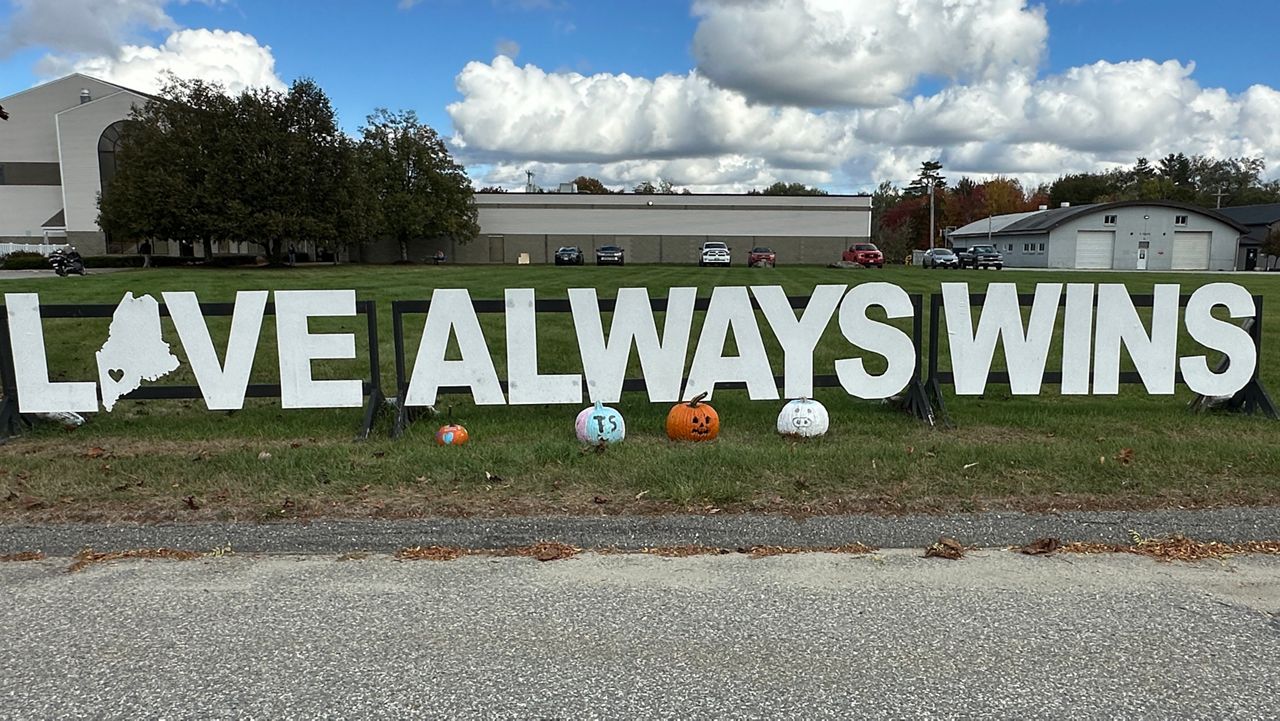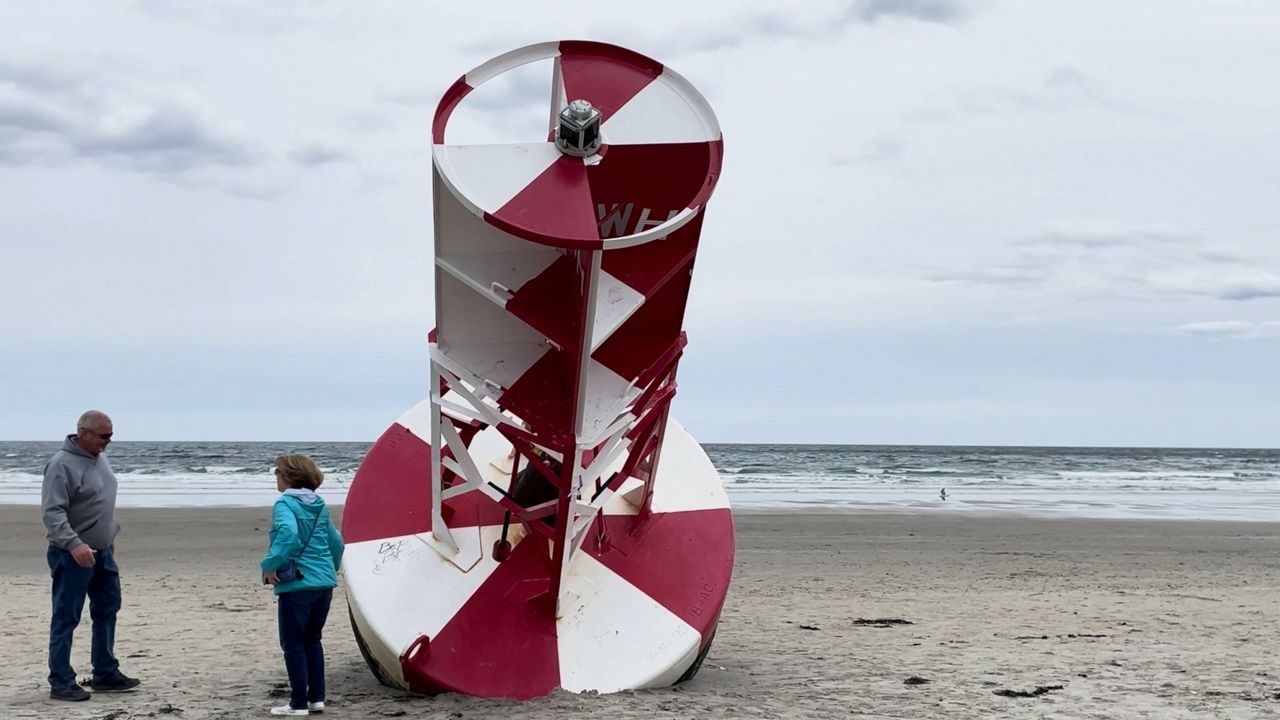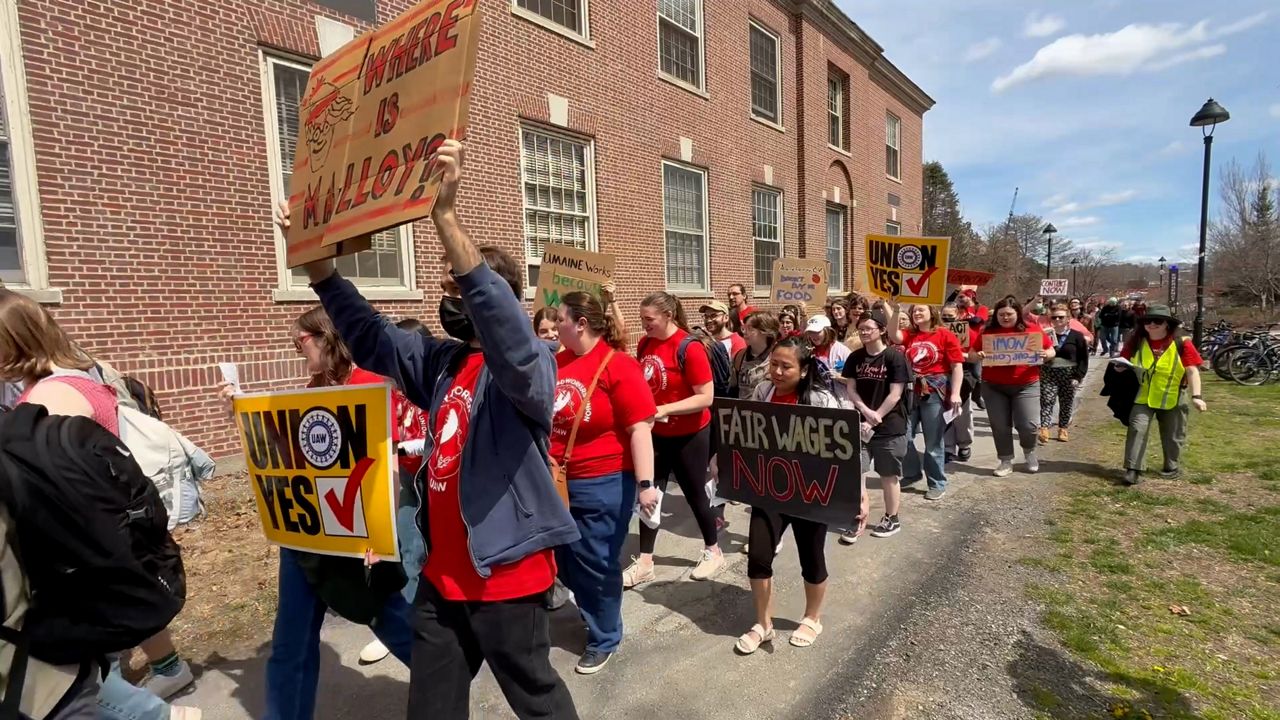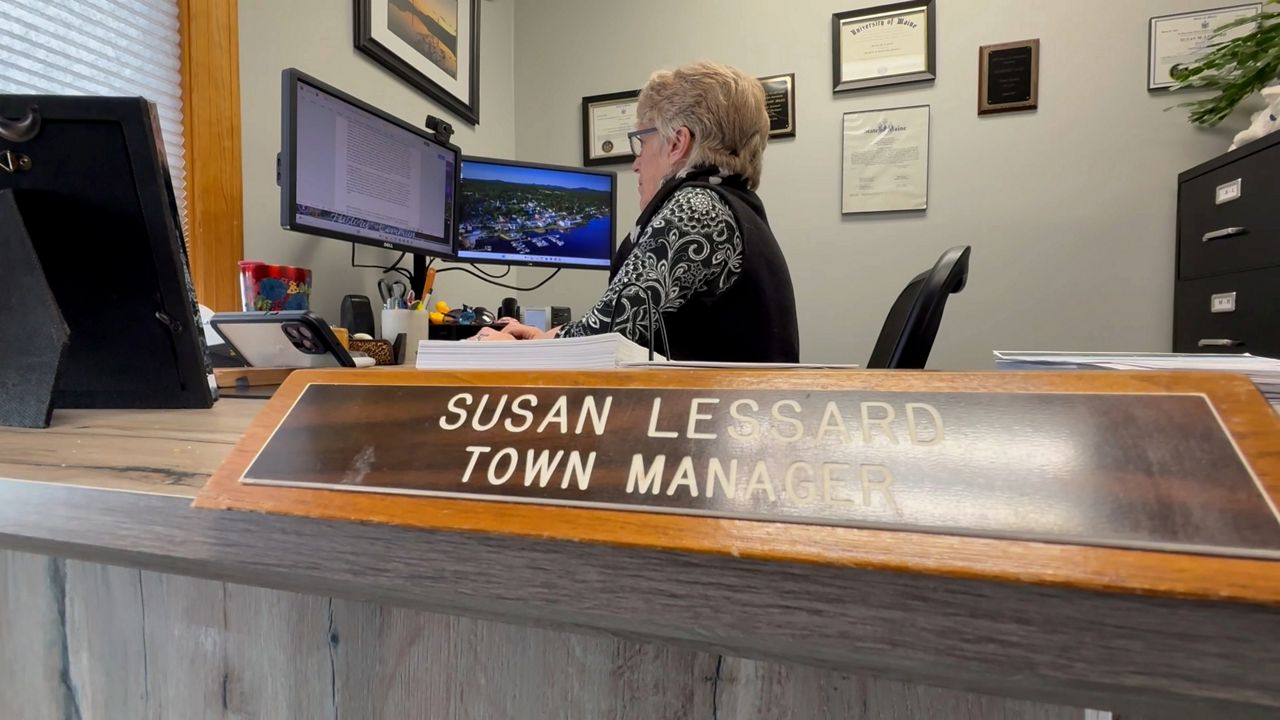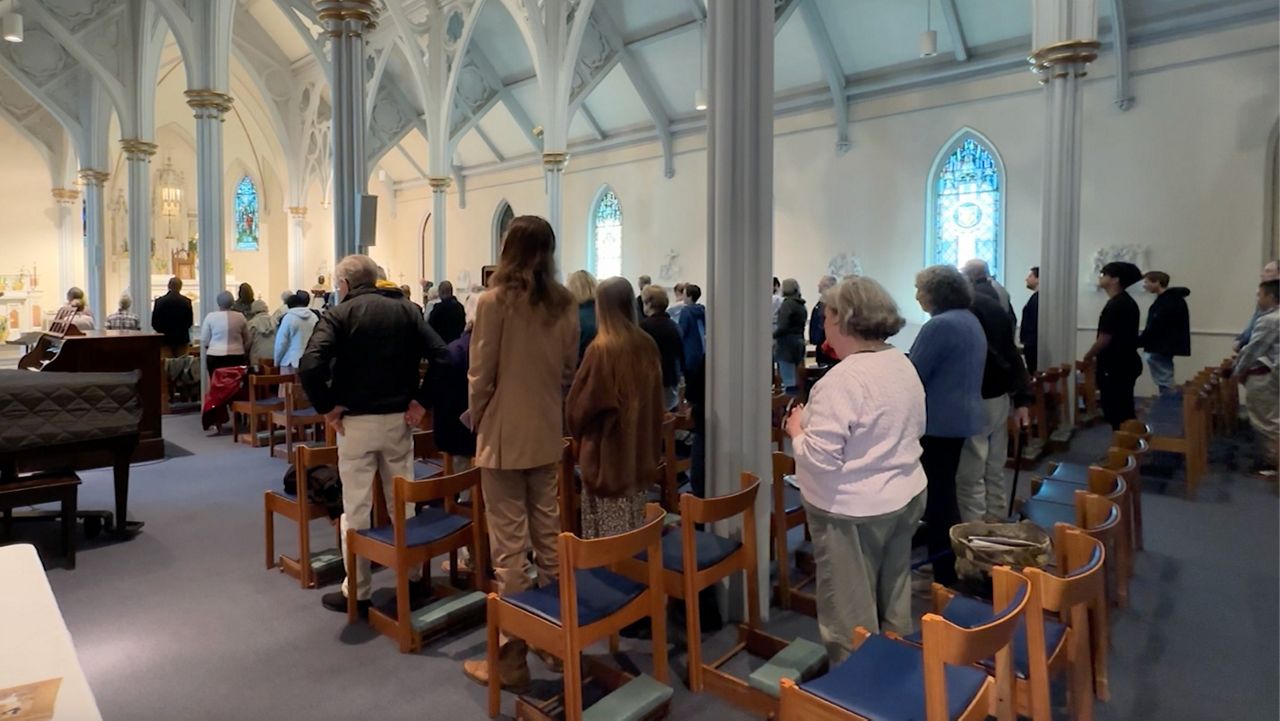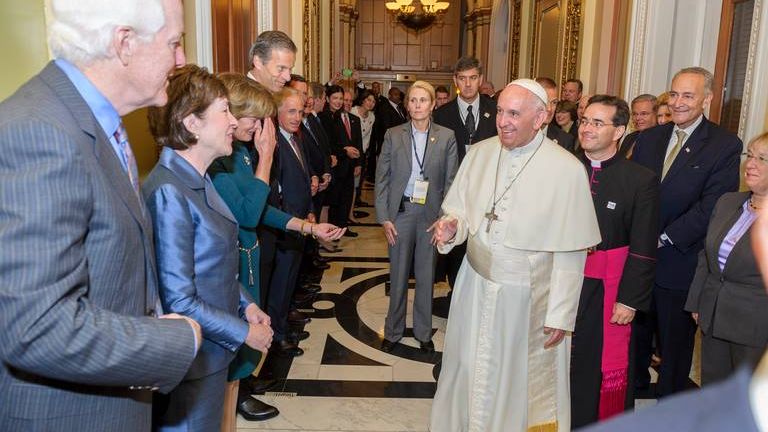On a recent Wednesday morning, bowling balls crashed into pins at Just-in-Time Recreation in Lewiston.
Bowlers filled 10 of the 12 lanes, high fiving after a strike, heads bowed after a gutter ball. Televisions flashed the latest sports news. Colorful balls stood at the ready, along with a pile of blue bowling shoes.
It’s not until you notice a display on the wall with 18 bowling pins bearing 18 names that you remember what happened here — and at a nearby bar — one year ago.
That’s when a gunman killed eight people at Just-in-Time before driving four miles to Schemengees Bar and Grille, where he killed 10 more. Officially, 13 people are counted as wounded, but dozens of others witnessed the shootings, including 20 children at the bowling alley.
The 18 who died ranged in age from a 14-year-old boy to a 76-year-old man.
For the past 12 months, the former mill town’s gritty resilience has shown through time and time again as residents work to figure out a new normal, said Shanna Cox, president and CEO of the Lewiston Auburn Metropolitan Chamber of Commerce.
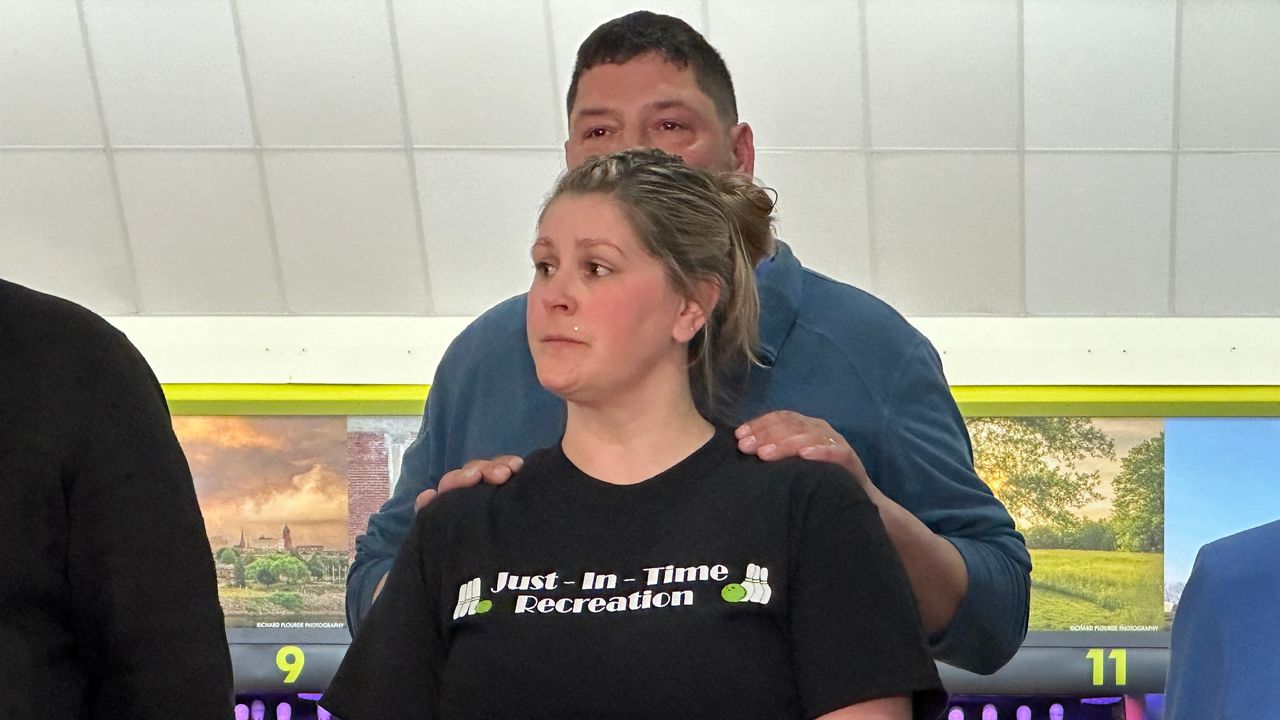
“In some ways we’re so much stronger than we were a year ago,” Cox said. “We’ve seen people really truly come together.”
For bowling alley owners Justin and Samantha Juray, the decision to reopen came a few weeks after the tragedy when they realized they missed their bowling family, the regulars who came through the door multiple times each week.
“We had gone from seeing family, basically, new family for three or four days a week to not at all,” he said. “From the youth all the way up to the seniors. It was like a lot to go that amount of time without seeing them. We missed them and that definitely helped influence us to say we want everybody back. We want our family back.”
On May 3, the governor, mayor, police chief, state legislators, Girl Scouts, and dozens of patrons gathered around the lanes to celebrate the return of a beloved community hangout.
Cox, who served as emcee during the reopening ceremony, said she wasn’t at all surprised the Jurays beat the odds and reopened. Across the country, most businesses never reopen after mass tragedies, she said.
But in Lewiston, it’s different.
“I think there’s something about showing that you can’t hold us down,” Cox said. “That he didn’t win that day. And that we’re stronger than that. For so many people, what Justin and Sam and so many others with them did by reopening that bowling alley was take a strong stand. We’re not going anywhere and we’re going to be OK.”
It’s a success story driven by the Jurays, married just eight years. He’s 44 and she’s 35.
“We celebrate the people we lost,” he said. “They helped influence us to make this decision. Every single one of them loved this place. They all had their special part here, their special place here and they continue to.”
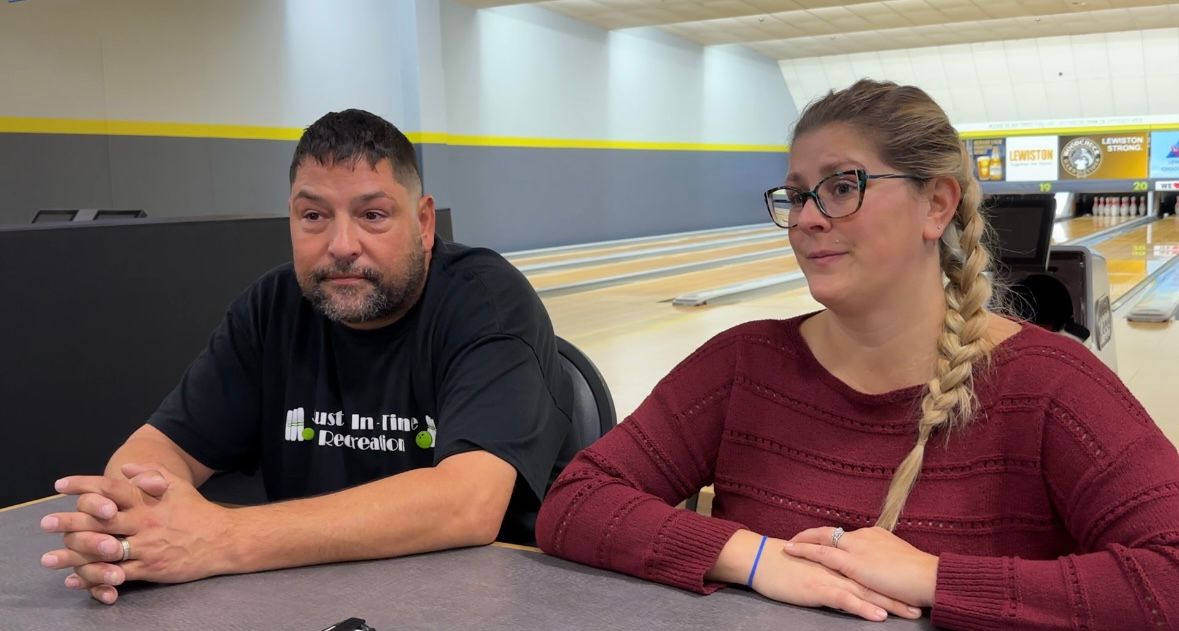
‘FOR THE LOVE OF POOL’
At Schemengees, another married couple, David and Kathy Lebel, ran the bar and pool hall that hosted a popular cornhole league.
They had been in business for 25 years when the tragedy occurred.
A November 2013 post to the Schemengee’s Facebook page explains why the couple bought the bar in 1999.
“Why did we open Schemengee’s? For the love of pool. My husband and I have loved pool almost as long as we have loved each other,” Kathy Lebel wrote.
In August, David died at age 57 following a long battle with Parkinson’s disease. On her Facebook page, Kathy paid tribute to him, describing him as “kind, gentle and loving.”
“He embraced life and people with an open heart,” she wrote. “Making friends came effortlessly to him; once you met Dave, you couldn’t help but feel the warmth of his kind soul.”
It’s unclear whether a new Schemengees will reopen. Lebel did not respond to requests for comment. In January, she told the Associated Press she wanted to reopen at a new location and keep the name.
Cox hinted that plans are in the works.
“Kathy is working towards a goal,” she said. “That’s a story for Kathy to share. I think there’s a lot of hope for her.”
As for the building at 551 Lincoln St., city officials recently announced a new warming center for the homeless will open this fall.
BUILDING A FUTURE
Since the bowling alley reopened in May, the reception has been “amazing,” Justin Juray said.
“Our youth program is, if not the biggest, one of the biggest in the state,” he said. “We have on average 50 plus kids. That’s our future. That’s amazing.”
They bought the bowling alley in May 2021, when the previous owner handed out fliers saying he was closing the doors. Justin bowled there as a child.
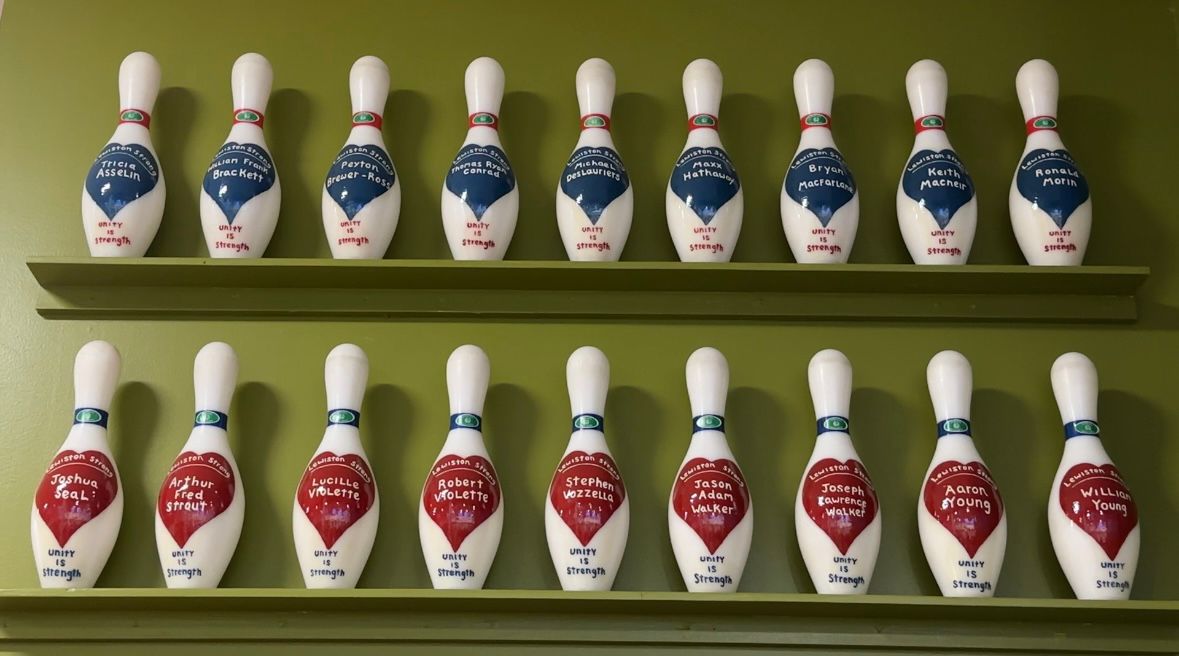
With a previous background in construction, the Jurays knew how to run a small business. But the bowling alley presented a different set of challenges.
“I never thought in my life I’d be a bartender and got thrown right into it,” Samantha Juray said.
As the one-year mark of the Oct. 25 shootings approaches, the couple says they are both doing OK. Samantha said for her, “it depends on the day.”
Justin said when the calendar turned from September to October, it came as a shock.
“It was like a gut punch,” he said.
Justin said in addition to getting support from the Maine Resiliency Center, he talks to a professional therapist and encouraged others to do the same.
“I was struggling to sleep,” he said. “I was struggling to get past the feeling of will this ever, the pain or the thought, all day every day, it was so consuming, and would I ever be able to function in reality again? I was having a tough time having conversations with people. It was just all consuming.”
The bowling alley will be closed on Oct. 25. Samantha said she’s not sure if she will attend a public service at the Colisee. Justin is thinking of going with some of the people from the resiliency center.
Cox encouraged the public to attend or watch the livestream if they cannot come in person.
“It’s been a thoughtfully prepared event, with survivors and members of the Deaf community and first responders,” she said. “We want to remember and honor and we want to show our resilience.”
Looking ahead, the Jurays want to continue to be a part of the fabric of the community for years to come.
“We don’t plan on getting rich, it’s just not gonna happen in this industry,” he said. “But we get rich with the relationships. We have so many even closer relationships. Finding a silver lining. It brought a lot of this community closer together. That’s moving forward. We all lost a lot but we didn’t lose everything.”





